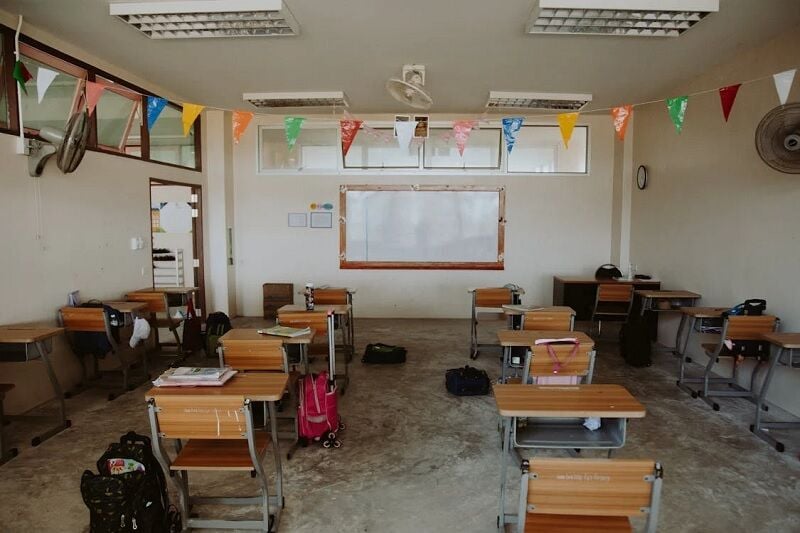Things to look for when you change schools in Thailand

Are you considering changing schools in Thailand? There are many concepts and tips that you should know before you do so, follow along and be well-prepared when changing schools!
Evaluating the educational systems
An important aspect of initiating a school change in Thailand entails comprehensively evaluating local and international education systems, along with grasping the intricacies of the Thai National Curriculum.
Local vs international Schools
Navigating through the educational landscape can be challenging. Comparatively, local schools are far more affordable than international schools; however, they focus mainly on the Thai National Curriculum. Meanwhile, international schools, albeit expensive, offer a wider curriculum with considerable emphasis on English language proficiency. They also provide added benefits such as after-school English tutoring programmes and rigorous Cambridge examination courses for students in years 7–13. A thorough assessment of the pros and cons would be beneficial in making an informed decision that would best suit your children’s education and family’s financial planning.
Understanding the Thai National Curriculum
Understanding the Thai National Curriculum would shed light on the educational journey of your child in Thailand. English language proficiency is heavily focused on in the years 7–13. Furthermore, for students with a weaker understanding of the English language, after-school tutoring programs (ASET) are offered for support. However, individuals with low English abilities might face obstacles in securing a place. Beyond academics, the enrolling process in Thai schools includes the submission of several documents, such as a completed application form, familial and personal identification, recent school records, health forms, emergency ambulance consent form, and school bus service forms if required. The financial commitments involve a registration fee of 60000 THB, an equipment deposit of 13000 THB and a tuition fee deposit of 40000 THB. Being cognizant of these requirements and expectations is essential when considering any school change in Thailand.
Key factors to consider when changing schools

As your family navigates the educational landscape in Thailand, it’s crucial to make informed decisions. Along with the mentioned curriculum and academic rigour of local and international schools, other key factors for schools in Thailand are listed below.
Teaching qualifications
Pay particular attention to the teaching staff’s qualifications. In some parts of Thailand, there’s a noted shortage of Native English-speaking (NES) female kindergarten teachers, which could influence the standard of a child’s early educational experiences. Furthermore, it’s imperative to ensure staff readiness in every position from administrative to academic roles, including the executive principal and subject teachers.
Facilities and resources
School infrastructure and resources play a crucial role in providing quality education. A school’s location and physical address, for example, could impact the daily commute and overall convenience. Similarly, check if the school premises include modern classrooms, well-stocked libraries, science labs, sports facilities, and other key resources.
School environment and culture
The school’s environment and culture contribute significantly to a child’s growth and satisfaction. Schools in Thailand can differ vastly in their environments and cultures, primarily influenced by whether the school is a local or international institution. Explore the behavioural policies, student-teacher relationship dynamics, extracurricular activities, and an overall sense of the community before deciding on the school switch.
This information should arm you with practical knowledge while considering school change in Thailand. Continually gather facts and stay informed to ensure a smooth transition for your family.
Planning the transition

Planning the transition strategically when changing schools in Thailand can aid smoothly in the process.
Timing the school change
Proper timing plays a crucial role. It’d be beneficial to consider the Thai academic year that commences in May. Thus, try to schedule the transition at the beginning of an academic year or a term. This way, your child can start afresh with their peers, reducing the feeling of uncertainty that joining midway may bring.
Preparing your child for the transition
Transitioning to a new school could be a significant change for your child. It’s critical to prepare them mentally for this shift. Extend your support, have open conversations about their feelings, and reassure them. Use resources, such as books or shows, to help them understand that change is a part of life and can be a positive experience.
Handling legal and administrative requirements
Make sure you’re familiar with all the legal requirements. For instance, in redundancy cases, you could be eligible for up to 10 months salary as redundancy pay, depending on the situation. If you’ve worked for three consecutive one-year contracts at the same institution, consult with a lawyer for redundancy pay eligibility. Remember, Thailand does have labour laws, and schools are required to follow them. Getting legal assistance might be necessary to understand your rights and entitlements fully.
You’re now aware that timing the school change with the Thai academic year is crucial, and you’ve got a handle on legal and administrative requirements, including redundancy pay eligibility. It’s clear that you’re well-equipped for a seamless educational transition in Thailand. Remember, every step you’ve taken is towards the betterment of your child’s future. So go ahead, take that leap with confidence. Your journey towards a successful school change in Thailand awaits.
Latest Thailand News
Follow The Thaiger on Google News:


























